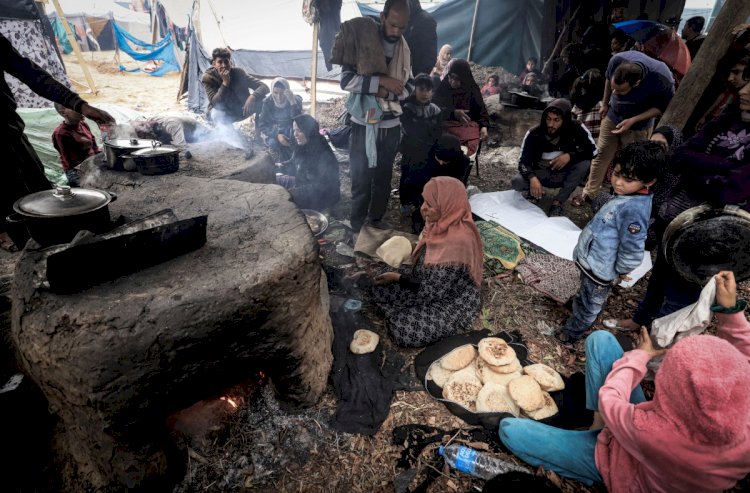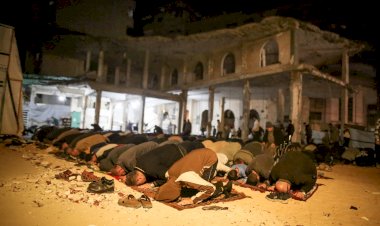(UNA/QNA) United Nations humanitarian workers have repeatedly expressed their grave concerns about the conditions of civilians in the Gaza Strip who are trapped in the war, in light of the continued Israeli bombing of Deir al-Balah, Khan Yunis, and Rafah in the south of the Strip.
Recent warnings issued by the United Nations Relief and Works Agency for Palestine Refugees (UNRWA) and the World Food Program highlighted the risk of famine and disease in densely populated areas, where hundreds of thousands of people have fled intense bombardment in the northern and central Gaza Strip.
The World Food Program said in a post on the X platform: “Everyone in Gaza is hungry!” Skipping meals is the norm, and every day represents a desperate search for sustenance. People often go all day and night without eating. “Adults go hungry so children can eat.”
According to UNRWA, more than a million people are now seeking safety in the already overcrowded southern city of Rafah, where hundreds of thousands are sleeping in the open without adequate clothing or materials to protect against the cold.
For its part, the World Health Organization warned of an “imminent risk” of an outbreak of infectious diseases. Since mid-October, the organization has recorded 179 cases of acute respiratory infection, more than 136 cases of diarrhea among children under the age of five, and 4600 cases of jaundice.
The Office for the Coordination of Humanitarian Affairs (OCHA) indicated that the health authorities in Gaza were able to resume some hospital services in northern Gaza, including Al-Ahli Hospital, the Friends of the Patient Charitable Hospital, Al-Hilu International Hospital, Al-Awda Hospital, and a number of other primary care centers.
OCHA said that this came “amid great risks surrounding the movement and work of medical teams due to the continuous bombing of residential neighborhoods and the vicinity of health facilities.” The Office for the Coordination of Humanitarian Affairs said that the Ministry of Health in Gaza, UNRWA and the World Health Organization are coordinating on a plan to reactivate health centers to meet the needs of the displaced in all places of displacement.
According to a report issued by the High Commissioner for Human Rights, the period from October 7 to November 20 witnessed “a sharp increase in air strikes as well as incursions carried out by armored personnel carriers and bulldozers sent into refugee camps and other densely populated areas in the West Bank, which led to There were deaths and injuries and severe damage to civilian objects and infrastructure.”
The Israeli entity continues its intense and unprecedented aggression against the Gaza Strip for the eighty-ninth day in a row, launching dozens of air strikes and shelling by land and sea, leaving 22185 martyrs and more than 57 thousand wounded, more than 70 percent of whom are children and women, while there are still thousands of martyrs and wounded under the rubble. On the roads, they could not be recovered due to the continuous bombing, and the occupation prevented ambulance crews from recovering them.
























Leave A Comment